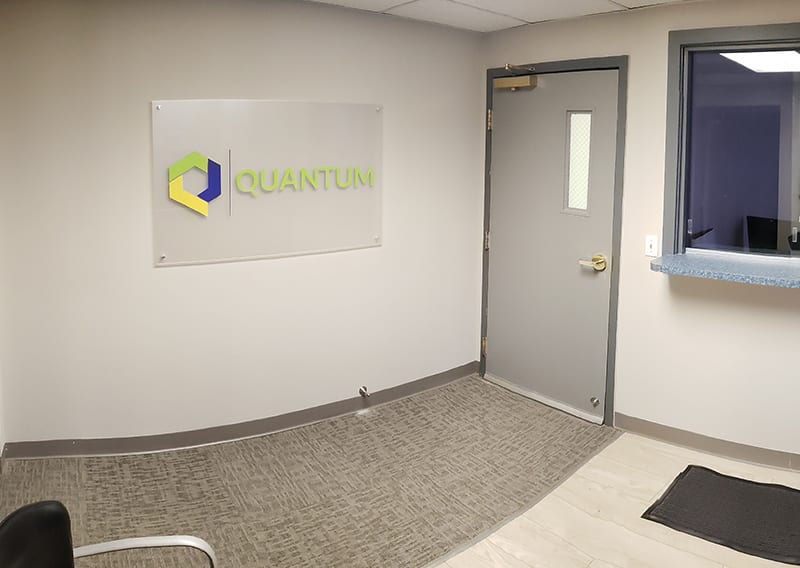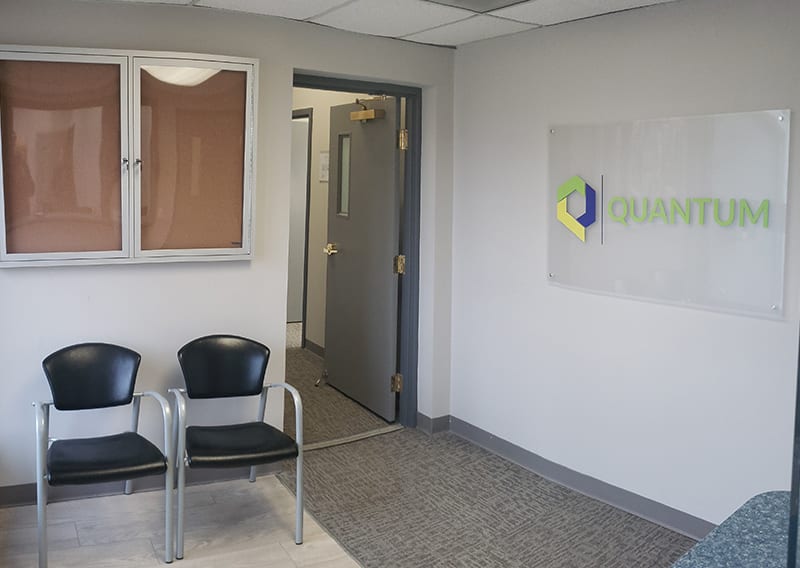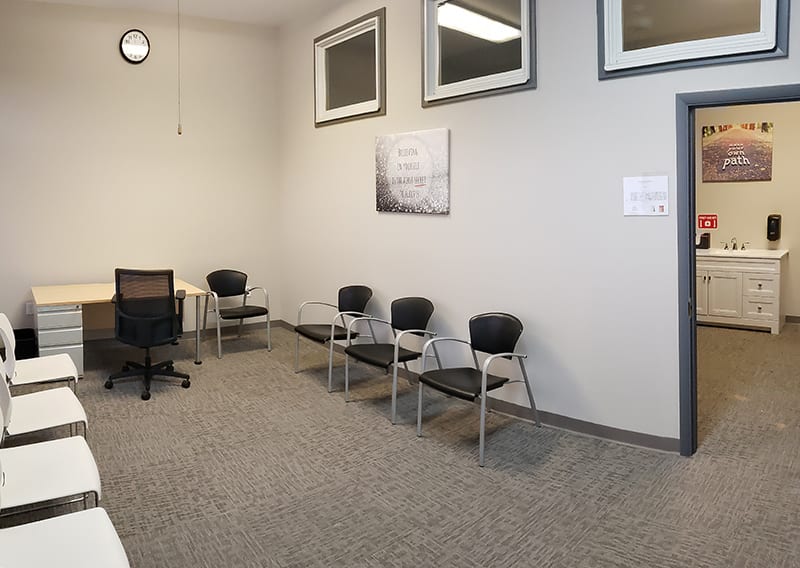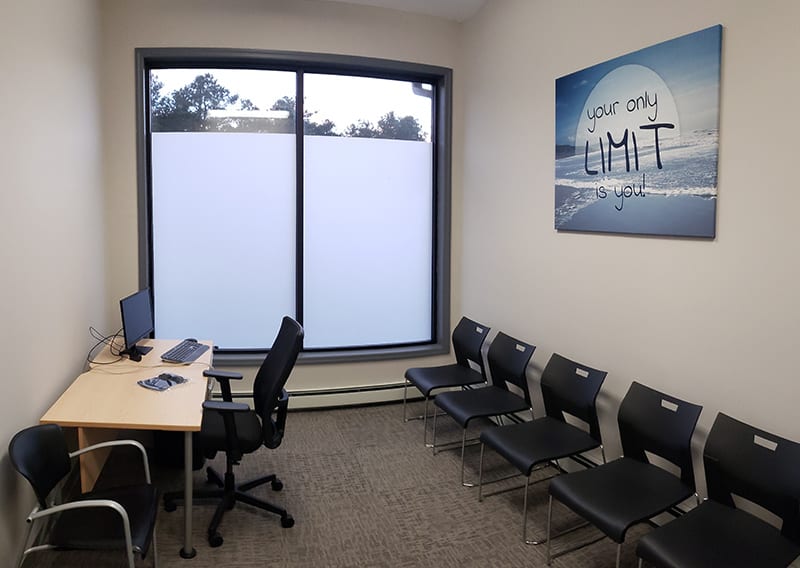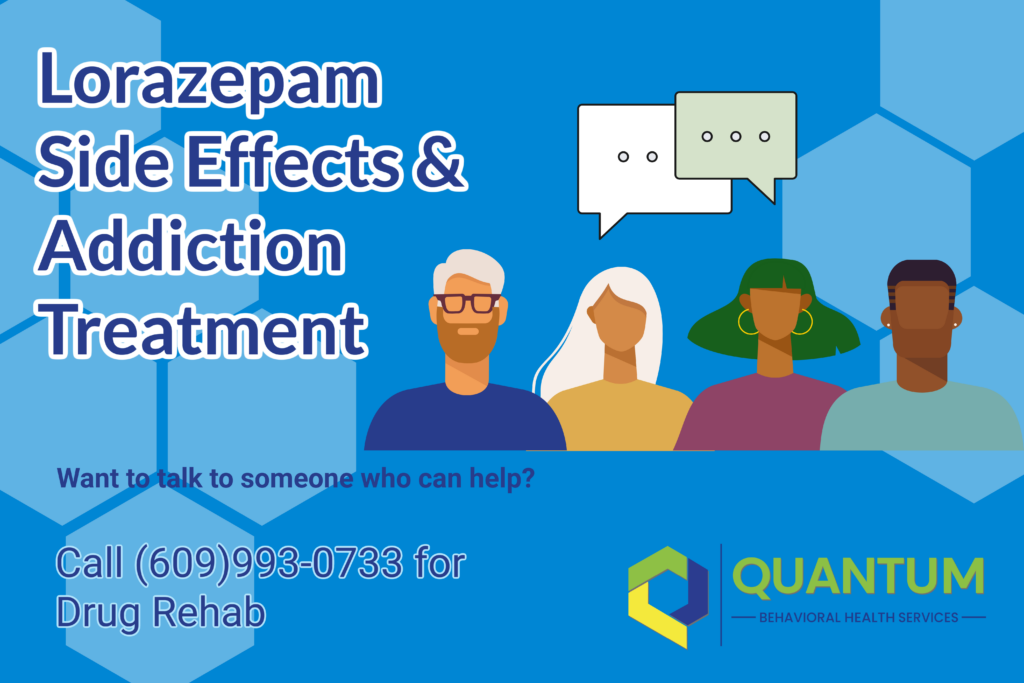
Are You Ready to Begin Your Journey to Recovery?
You could be completely covered. Verify Your Insurance Today.
The Quantum
Process Outpatient Rehab NJ
1. Make the Call
Contact our Quantum Team at
(609) 993 – 0733 to get started.
2. Complete
Your Intake
This streamlined process includes a series of questions and discussion of your unique needs and goals.
3. Get the Best Care Team Possible
After your intake, you’ll meet your Care Team, a group of amazing professionals dedicated to helping you make recovery reality.
4. On-Going Support
After you meet your Care Team, you’ll start to receive treatment based on a Care Plan that’s designed to help you achieve and sustain your recovery.
Photo Gallery
Click photos to enlarge
What is Lorazepam?
Lorazepam (Ativan) is a benzodiazepine used to treat anxiety disorder, panic attacks, insomnia, and seizures. Sometimes it is used to treat manic episodes of bipolar disorder. It has a calming effect on the nervous system and brain. Taking benzodiazepines, including lorazepam, come with a risk of dependence and addiction, even when used as prescribed.
Lorazepam Effects
Lorazepam, like other benzodiazepines, has a calming effect on the central nervous system which can ease symptoms of anxiety disorder such as extreme fear and nervousness. It also comes with adverse symptoms. Effects of Ativan include:
- Difficulty walking
- Drowsiness
- Fatigue
- Abnormal eye movements
- Blurry vision
- Dizziness
- Nausea
- Slurred speech
- Lack of coordination
- Feelings of weakness
- Constipation or diarrhea
- Urination problems
- Reduced sexual drive or ability to perform sexually
- Stupor
- Impaired cognitive ability
- Blackouts
- Coma
Signs of Lorazepam Abuse and Addiction
Ativan (lorazepam) is a schedule IV controlled substance, meaning it comes with abuse potential. Ativan addiction and abuse develop when tolerance is built and you need more of the medication to get the same effect. Benzos are associated with an increased dopamine release in the brain which causes feelings of euphoria and reward. There are several signs and symptoms of Ativan addiction, which include:
- Failed attempts to stop using lorazepam
- Drop in performance at school or work
- Unable to fulfill personal or professional obligations because of drug use
- Tolerance, needing more medication to feel its effects
- Using lorazepam in hazardous situations, such as while driving
- Continued use despite negative consequences in health, personal life, or work life
- Withdrawal symptoms when attempting to stop using
- Cravings for lorazepam
- Relationship or interpersonal problems because of use
- Prioritizing Ativan use over important social, professional, or recreational activities
Long Term Side Effects of Lorazepam Abuse
Over long term, Ativan can have a negative impact on an individual’s psychological, emotional, and physical well-being. Some long-term effects of Ativan include:
- Fatigue
- Anxiety
- Memory loss
- Learning difficulties
- Disorientation and confusion
- Abdominal bleeding
- Kidney problems
- Headaches
- Seizures
- Insomnia
- Withdrawal
- Mouth sores
- Headaches
Lorazepam Addiction Treatment
Due to potentially life-threatening complications of lorazepam withdrawal, medical detox may be required where professional medical staff will monitor your vitals and ease withdrawal symptoms through medication management. After drug and alcohol detox, you should enter prescription drug addiction rehab where various substance abuse treatments can help you overcome various aspects of Ativan addiction Treatment programs that are tailored to fit your addiction and personal needs. Inpatient rehab is highly recommended for those with severe or prolonged substance abuse or drug addiction. Inpatient treatment is the most intense form of substance abuse treatment but may be the chance for addiction recovery. Outpatient rehab is also available for those who wish to live at home during Ativan addiction treatment or needs to continue going to work or school. Partial hospitalization programming (PHP) is the most intense form of outpatient rehab, followed by the intensive outpatient program (IOP).
Many people who have an addiction to lorazepam (Ativan) have been prescribed it for mental health disorders. That underlying mental illness issue is still there and needs to be addressed simultaneously during drug addiction treatment through dual diagnosis programming. Co-occurring disorders such as anxiety disorder, panic attacks, depression, eating disorders, and bipolar disorder can all be relapse triggers and should be treated before you leave the treatment center.
Various types of treatment are available at drug rehab centers which are tailored to your specific treatment program. Some types of treatment available include:
- Medication Assisted treatment
- Drug Rehab Treatment
- Alumni program
- Family therapy
- Dialectical behavior therapy
- Cognitive behavioral therapy
- Group therapy
- 12-Step Programming
- Holistic therapies
If you or your loved ones are dealing with prescription drug addiction and are looking for treatment for Ativan addiction, addiction specialists at Quantum Behavioral Health Services are available for addiction resources you may need.

